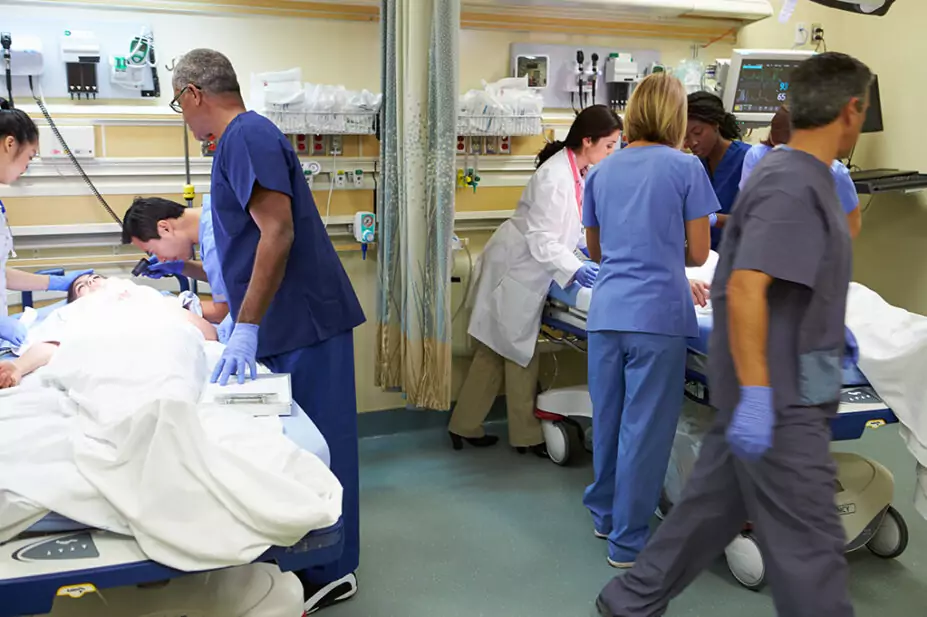
Shutterstock.com
All hospital emergency departments (EDs) in the UK “must have a dedicated pharmacist”, a joint position statement from the Royal College of Emergency Medicine (RCEM) and the UK Clinical Pharmacy Association (UKCPA) has said.
The statement, published in December 2023, sets out seven standards, including one that says there should be one whole-time equivalent (WTE) pharmacist working for every 10 resuscitation beds in an emergency department. Another standard says that there should be one WTE pharmacist for every 20 high-acuity beds.
It also states that all emergency departments should have a dedicated pharmacy technician, with 1.0 WTE pharmacy technician as a minimum, and that the emergency department pharmacy service should be available seven days per week.
“As a minimum, the service must be available five days per week, [with] plans in place to increase to seven days per week by 2025,” the statement adds.
The statement also makes five recommendations, including a call for extra pharmacy resources to be provided to emergency departments at busy times to reduce the risk of patient harm.
“[The] RCEM recommends, where required, an additional 0.05 WTE pharmacist or pharmacy technician per occupied corridor/overflow bed OR 0.05 WTE per patient waiting 12 hours or greater in the ED,” the statement says.
National Institute for Health and Care Excellence (NICE) guidance on the treatment of adults in emergency care, published in March 2018, recommends the inclusion of pharmacists in the multidisciplinary care of patients requiring emergency admission to hospital, but it does not set out required numbers.
The RCEM and UKPCA statement said: “Patients presenting to the emergency department are increasingly complex, with multiple comorbidities and significant polypharmacy.
“Pharmacy services are uniquely qualified to ensure safe and effective use of medicines, improving quality of care, and reducing unnecessary costs and treatment delays. Pharmacists optimise medication use in the acutely unwell patient, improving prescribing quality and safety, factoring in instability and complexity of medicines used in this patient group using evidence-based recommendations, and collaborating with medical and nursing teams.
“In comparative studies, proactive reconciliation and optimisation of both acute and chronic medicines by pharmacy teams in patients presenting to the emergency department has been shown to reduce medication errors and improve outcomes for patients.”
In 2019, following criticism from senior pharmacists, the RCEM said it would rewrite a policy statement, published in April 2019, which said that pharmacists should only see emergency department patients for medicines-related matters.


